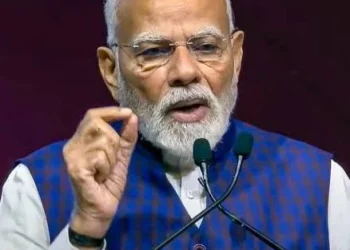Priyanka Gandhi Vadra’s victory in Wayanad is more than a win—it’s a masterclass in empathy-driven campaigning. From connecting with women voters to invoking her family’s legacy, she cements her place in the Congress pantheon with a resounding message of hope and leadership.
By PC Bureau
In her much-anticipated political debut, Priyanka Gandhi Vadra swept the Wayanad bypoll with an electrifying 64.99% vote share, the largest in the constituency’s history. While her margin of victory—4,10,931 votes—just missed Rahul Gandhi’s 2019 record, it’s a clear testament to her ability to captivate the electorate and reinforce the Congress party’s enduring legacy in this bastion.
Wayanad, a picturesque yet politically charged constituency spanning Wayanad, Malappuram, and Kozhikode districts, has always been a Congress stronghold. The party’s alliance with the influential Indian Union Muslim League (IUML) only bolstered its grip, ensuring minority support remains steadfast. This time, the Left’s lackluster campaign added to the Congress’s dominance, with the CPI appearing resigned to defeat.
Despite the BJP-led NDA’s hopeful predictions of a shift, the voters remained loyal to the Congress. Wayanad’s affection for the Gandhi family once again became the campaign’s beating heart.
Priyanka’s campaign wasn’t just political—it was deeply personal. With a flair for connection, she tailored her speeches to resonate with the everyday struggles of her audience. Her candid acknowledgment of women’s dual burdens—both professional and domestic—struck a chord. “I know your children are waiting at home, and there’s food to cook and work to finish,” she said, her words echoing far beyond the rally grounds.
Her charm extended to cultural nuances. By opening with phrases in Malayalam, like “Ellavarkum Namaskaram” (Greetings to all), she bridged gaps with her audience, silencing critics who questioned her familiarity with the region.
Unlike Rahul Gandhi’s policy-driven 2019 campaign, Priyanka leaned into emotional appeal. Traveling extensively and interacting with voters in their daily lives, she avoided overt political jargon. Instead, she allowed her presence and warmth to speak volumes, invoking comparisons to her grandmother, Indira Gandhi. Campaign posters and songs reinforced this carefully crafted image, presenting Priyanka as the embodiment of a legacy reborn.
With her victory in Wayanad, Priyanka Gandhi Vadra has announced herself not just as a political debutante but as a rising star poised to carve her place in Indian politics. Her triumph is more than just a win—it’s a statement.














